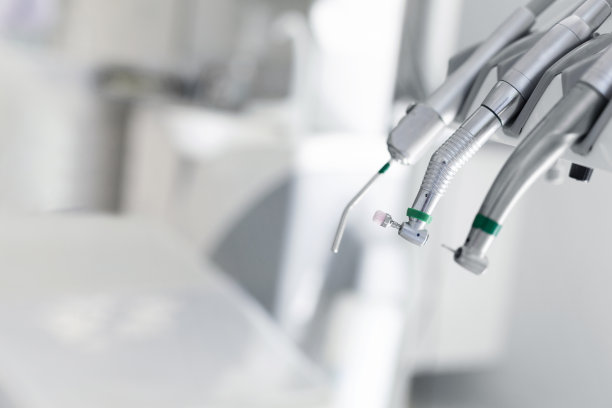Summary: Dental fillings are a common dental procedure designed to restore the functionality and aesthetics of a tooth damaged by decay or injury. To ensure the best outcomes, it is crucial to follow essential safety measures before and after this procedure. This article outlines key tips that focus on preparation for the treatment, maintaining hygiene post-procedure, recognizing potential complications, and adhering to follow-up care. By embracing these guidelines, patients can minimize discomfort, enhance healing time, and ensure the longevity of their fillings. Understanding these aspects will empower patients to make informed decisions about their dental health and enhance their overall oral well-being.
1. Preparation Tips Before Your Procedure

Before undergoing a dental filling, proper preparation can greatly enhance the experience. Start by communicating openly with your dentist regarding any concerns or medical conditions. This dialogue will help your dentist tailor the procedure to your needs, such as using anesthesia or special techniques if needed.
Next, consider scheduling the filling at a time when you can avoid rushing afterward. Allowing yourself ample time to recover can help mitigate any stress associated with the procedure. Moving slowly and taking time after the appointment will allow you to assess how you feel and take care of your mouth properly.
Lastly, refrain from eating for a few hours before your appointment. Arriving with a clean mouth not only minimizes discomfort but can also make the procedure smoother and quicker for your dentist, leading to a more positive experience overall.
2. Key Hygiene Practices Following Your Filling
Post-procedure hygiene is vital to enhance the longevity of your filling. Firstly, it is essential to avoid eating or drinking until the numbness from anesthesia wears off completely. This will prevent accidental biting of your tongue or cheek, which can lead to unwanted injuries.
Once you can eat again, focus on soft foods and avoid hot or cold items for the first 24 hours. This helps in minimizing sensitivity and discomfort around the filling site, allowing your body to adjust gradually.
Furthermore, maintaining your usual oral hygiene routine is critical. Gently resume brushing and flossing but take care around the filled tooth. Using a soft-bristled toothbrush and fluoride toothpaste can aid in protecting the surrounding enamel and promoting healing.
3. Recognizing Potential Complications
Being aware of potential complications after a filling is crucial for your health. One common concern is increased sensitivity, which can occur after treatment. Its essential to monitor this sensitivity, as it should gradually decrease. If it persists or grows more pronounced, contact your dentist immediately.
Another possible complication could be discomfort from the filling being too high. If you feel uneven pressure during biting, schedule a visit with your dentist to have it adjusted. Prompt action can help prevent further issues, such as tooth decay or damage to surrounding teeth.
Lastly, allergic reactions to dental materials, while rare, can happen. If you experience symptoms such as swelling, hives, or difficulty breathing shortly after your procedure, seek immediate medical attention. Being informed enables you to respond appropriately if these scenarios arise.
4. Importance of Follow-Up Care and Check-Ups
Follow-up care plays a significant role in ensuring your fillings effectiveness and your overall oral health. Schedule a follow-up appointment as recommended by your dentist to inspect the filling, ensuring it remains intact and functions properly over time. Regular check-ups are key to detecting any early signs of complications.
Additionally, maintain awareness of changes in your teeth or overall oral conditions between appointments. If you notice new pain, sensitivity, or changes in the filling, don’t hesitate to reach out to your dentist for guidance.
Finally, commit to regular dental cleanings and examinations. This routine care not only maintains your dental health but also helps in early detection of potential issues that could lead to fillings or other procedures, ultimately prolonging the life of your fillings and your oral health.
Summary:
Proper preparation and diligent aftercare can significantly improve the outcomes of your dental filling procedure. Following the outlined safety measures and tips helps ensure a smoother experience, prevent common complications, and promote lasting dental health. By prioritizing communication with your dentist and maintaining good hygiene, you enhance your recovery and keep your smile healthy.
This article is compiled by Vickong Dental and the content is for reference only.
Vickong Dental
Vickong Dental is a large medical group established in Hong Kong in 2008 by professors from well-known medical universities in Guangdong and Hong Kong, as well as medical doctors from key national '985' universities (including Master's supervisors and senior professors). The chain of branches brings together expert dentists with PhDs and Master's degrees from Hong Kong and Mainland China, committed to providing high-quality dental treatment.
"Vickong Dental Practices the University Motto of 'Healing and Serving Society,' with a Stable Operation for Sixteen Years. It Has Been honored with Hong Kong Enterprise Leaders's Choice,' and is a Global Trusted Implant Center for the Nobel Implant System. Recommended by Hong Kong Metro Broadcast and Guangdong Television, it Serves Customers from Over Thirty Countries and Regions, Gaining the Trust and Favor of Citizens from the Guangdong-Hong Kong-Macau Greater Bay Area and Surrounding Cities.

Thousands of customers' unanimous praise
The most recognized and highly recommended dental service by customers in the Guangdong-Hong Kong-Macau Greater Bay Area
We Ensure You Receive Detailed Care and Attention Here
Hong Kong standards, Shenzhen prices, Your Trusted English-speaking dentists

Vickong Dental Medical-Grade Instrument Disinfection Process
Vickong Dental Medical-Grade Instrument Disinfection Process

Vickong Dental Chain: A Warm and Comfortable Environment for Treatment






Appointment Hours

Q&A
Why choose Vickong Dental?
Vickong Dental practices the university motto 「Medicine to Benefit Society」, with each branch bringing together highly qualified dentists with doctoral and master’s degrees from Hong Kong and the Mainland, and has maintained seventeen years of steady operation。Recipient of 「2024 Hong Kong Enterprise Leaders Brand」, 「2025 Hong Kong Enterprise Leaders Brand」, a Nobel Biocare Global Trusted Implant Center, and a brand recommended by Metro Radio Hong Kong and Guangdong TV。
To date, we have served customers from more than thirty countries and regions,earning exceptionally high word-of-mouth recognition and trusted recommendations from residents across the Guangdong-Hong Kong-Macao Greater Bay Area and surrounding cities
We have eight major branches in Zhuhai、Shenzhen,and a consultation and service assurance center in Hong Kong,so you can book a free consultation at any time for any questions,which is very reassuring.
If I do not accept the quotation after the CT scan, will I be charged??
No! As long as the actual treatment has not started, you will not be charged any fees.
Will there be any additional charges during the treatment process?
No, there won’t be any additional charges. Before treatment begins, we will clearly explain the treatment plan and its corresponding fees. Only after the patient agrees and signs the consent form will we proceed with the dental service.
Can I pay in Hong Kong dollars?
Yes. Vickong Dental accepts payment in Hong Kong dollars. The amount will be converted based on the exchange rate of the day, and the applicable rate will be clearly communicated to you in advance.
Can I reschedule my appointment at any time?
Yes. Please contact us via **WeChat** or **WhatsApp** as early as possible, providing your original appointment time and details, along with your preferred new date and time slot for rescheduling.













